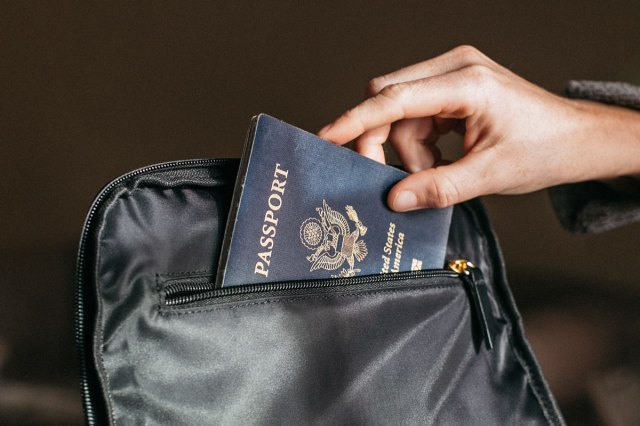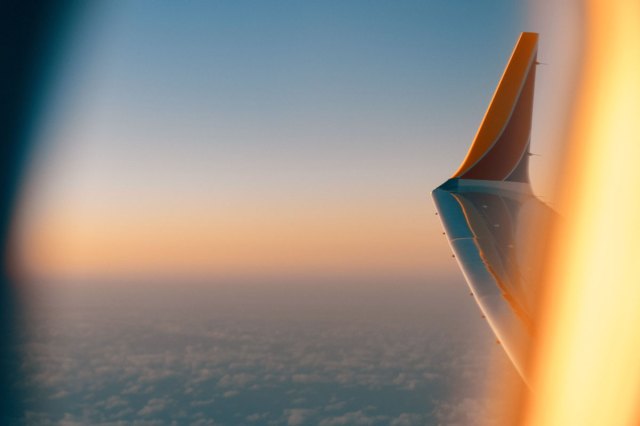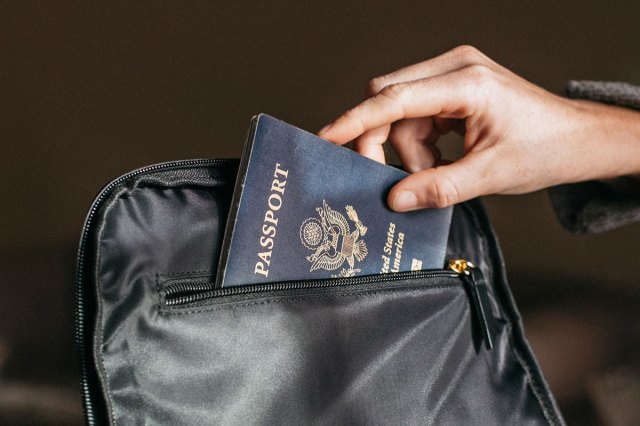All featured products and deals are selected independently and objectively by the author. Better Report may receive a share of sales via affiliate links in content.
We all love to travel, but we don’t love paying for it. Airfare costs have been sky-high in recent months and show no signs of dropping anytime soon. While there’s no magic trick to securing inexpensive flights, there are a few best practices to follow — the most important of which is timing your purchase just right.

The Initial Search
One way to counter the fact that the cost of jet fuel continues to rise even as overall inflation drops is with a price-monitoring tool, of which there are many. That list includes apps like Going (formerly known as the slightly less catchy Scott’s Cheap Flights) and Hopper as well as price alerts courtesy of websites like Skyscanner, Kayak, and Google Flights. Most of these are simple enough, requiring you to do little more than input your destination of choice and wait until prices (hopefully) drop, but there are ways to be even more diligent if you’re so inclined.
Supposed go-arounds like browsing for flights in incognito mode or on specific days aren’t backed up by data, though the latter used to be. “While there used to be greater price variation depending on the day of the week you booked a flight,” according to InsanelyCheapFlights.com CEO Steve Oliverez, “there’s less variation now due to pricing being handled algorithmically by computers.” So while you might have heard that Tuesdays and Wednesdays are the best days to book flights, that sadly isn’t true — neither the time of day nor the day of the week has any bearing. There’s also no point in clearing your cookies or browsing on incognito mode like some kind of flight-tracking spy, alas.

Planning Ahead
That doesn’t mean that timing isn’t crucial. Though the exact time frame varies a bit depending on whom you ask, The Points Guy recommends that prospective travelers begin monitoring domestic flights three to four months before they plan to leave and book their trip one to two months in advance. That timeline is a bit wider for international flights: start monitoring six to seven months out and buy your ticket three to five months before departure. Prices for domestic flights tend to get increasingly more expensive in the last few weeks, so don’t wait until the last minute.
To get even more specific, a 2022 study by CheapAir.com determined that the best time to buy tickets for a domestic flight is exactly 76 days before departure, though the overall window ranges from 127 to 21 days in advance. To get the best deals without driving yourself crazy, follow the general guidelines without getting too hung up on the exact dates.

Flying Out
That applies not just to when you purchase your tickets but when you actually leave. One of the biggest mistakes travelers make, according to The Vacationer founder Phil Dengler, is fixating on dates rather than destinations. “Picking travel dates before you look at flight prices almost always leads to you paying more than you have to,” says Dengler. “You should always pick a destination and find the cheapest days to fly to that destination. Those savings increase the bigger your party is, and you may only have to fly a day or two earlier or later than you originally intended.”
That could mean leaving midweek rather than on a Friday, as the day of the week actually does play a factor when it comes to the flight itself. If you can be flexible, there are still cheap flights to be found even now.
Essential Items to Pack

Hopefully, by following this advice you’ve scored a great deal on airfare. The planning doesn’t end there, however — now it’s time to start thinking about what to pack that will make you as comfortable on your trip as the price you paid for it.
Luckily, the first item to pack takes up barely any space — but it’s one travel experts such as The Points Guy recommend never leaving on a trip without. We’re talking about AirTags, the tiny tracking device (a little larger than a quarter) that uses bluetooth technology to keep tabs on your belongings. Many travelers are all too familiar with that sinking feeling at baggage claim that their luggage has been lost by the airline, but if you stick this handy gadget in your bag before departing, you’ll be able to show airline staff the exact location of your bag if it gets lost.
Speaking of bags, no traveler wants their vacation ruined by theft — all those dollars you saved by booking your airline tickets at the right time won’t matter much if you have to replace all your belongings while actually on your trip. For that reason, many frequent fliers recommend traveling with an anti-theft bag, which comes with features that make it tricky for thieves to access your valuables. One of our favorites is the Pacsafe Citysafe Square Crossbody — ideal for travelers who are sightseeing in busy cities and other crowded places.
You’ll probably also want to invest in a handy passport holder like these from Bellroy that are both beautiful and functional, with useful features including RFID protection.
And of course, there’s the flight itself. Even if you scored a great deal on airfare, that feeling of euphoria can quickly vanish if you’re surrounded by loud or disruptive seatmates. That’s where noise-canceling headphones come in. The ones from Bose are some of the best on the market — and if you travel frequently they’re a worthy investment.
Prices are accurate as of June 12, 2024. Subject to change. All featured products and deals are selected independently and objectively by the author. Better Report may receive a share of sales via affiliate links in content.
Featured Image Credit: Vinta Supply Co. | NYC/ Pexels
More From Our Network
Better Report is part of Inbox Studio, an email-first media company. *Indicates a third-party property.














